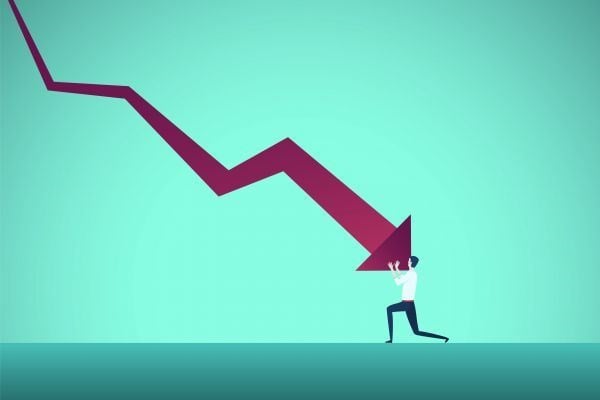
Euphemisms allow us to avoid confronting the cold, hard truth. Their ambiguity makes the terrible seem merely bad and the bad seem almost OK. It is a softening of subjective reality that allows us to happily live in deluded denial. This isn't a great strategy for relationships, for careers and, especially, for investors.
Consider that we no longer have car crashes, despite the staggeringly high death rate. Instead, we have "accidents" caused by inattentive, reckless or - to use a euphemism -impaired drivers. Companies don’t fire thousands of employees at a time, driving the unemployment rate higher; they downsize or, even worse, right-size. Even the word euphemism is itself a euphemism. It is a lie designed to hide an ugly truth from ourselves.
Bananas and kumquats
"Banana" was an infamous economic euphemism during the 1970s. Alfred Kahn, then chairman of the Council on Wage and Price Stability, was told never to use the word "depression" or even "recession" when speaking at the White House or in public. To warn of potential economic trouble, he discussed "the worst banana you ever saw."
As it turns out, refusing to use the word "recession" was a poor political strategy for Kahn’s boss, President Jimmy Carter. He lost his re-election bid in a landslide. Or perhaps it goes down easier to note that Carter "came in second" due to a "kumquat."
Euphemisms don't help us make better decisions or confront challenges directly. As reported by Bloomberg News and the New York Times, the skyrocketing use of the word "unprecedented" during quarterly earnings conference calls serves as a reminder. We all understand the extent of lockdown orders, with the related impact on gross domestic product. But here's the issue: Investors don't expect management to be clairvoyant, but they do expect them to have plans for when disaster strikes and to execute that plan when necessary. This leads to three basic questions investors should ask corporate management:
No. 1. What did you do to prepare for this sort of event?
No. 2. How are you managing in the crisis?
No. 3. What are your plans for the post-pandemic future?
Some companies are much better situated by dint of their business model than others. Netflix is a natural winner in an era of sheltering at home. But entertainment giant Walt Disney, with its theme parks and theatrical films, was badly hit by the pandemic. It also had the foresight to diversify from those "live" businesses, with new services such as the Disney+ streaming service, which now has more than 55 million paying subscribers. Unprecedented events did not derail it from planning for home entertainment and executing that plan. Other live entertainment companies such as Live Nation Entertainment, Madison Square Garden Entertainment or Six Flags Entertainment were not as prescient.
Consider retail companies such as Amazon.com, Target and Walmart - all have done an excellent job executing a so-called last-mile strategy. Other retailers selling essentials to the same customers have not. Investors judge these managements, in part, by how they respond to a crisis like Covid-19. This particular event never happened before, but shareholders still want to know how corporate chiefs plan on managing it.
Limited 'visibility'
The overemphasis on "unprecedented" deserves attention because it's so trite. Novel, first-time events occur with startling regularity. The normal state of human affairs has been persistent and unprecedented change. It isn't just the global health risks of this moment; it is true in every sphere of human endeavor. The default setting of humanity is to create new ideas, innovations, concepts, business models, technologies and solutions.
Under the best of circumstances, we have limited "visibility" - another euphemism - about almost everything. Consider corporate revenues and profits. Look how often companies update, amend and revise quarterly earnings "guidance" - one more euphemism, this one for "forecast." Yes, these forecasts become more accurate as the end of a quarter approaches, but that's only because more hard data has accumulated. In the end, it only comes down to informed guesswork.
These may be unprecedented times, but they are not really out of the ordinary. Uncertainty always rules, and no one ever knows the future. For that reasons, no one really knows or even has a good sense of when the economy will recover, how many will die and when the pandemic will be over. Pretending otherwise with euphemisms does not make it any less so.
Just remember that there is exactly the same amount of uncertainty now about the future as there always is. During times of crisis, you simply lose the ability to fool yourself about it.
Ritholtz is a Bloomberg columnist. Views expressed are his own.